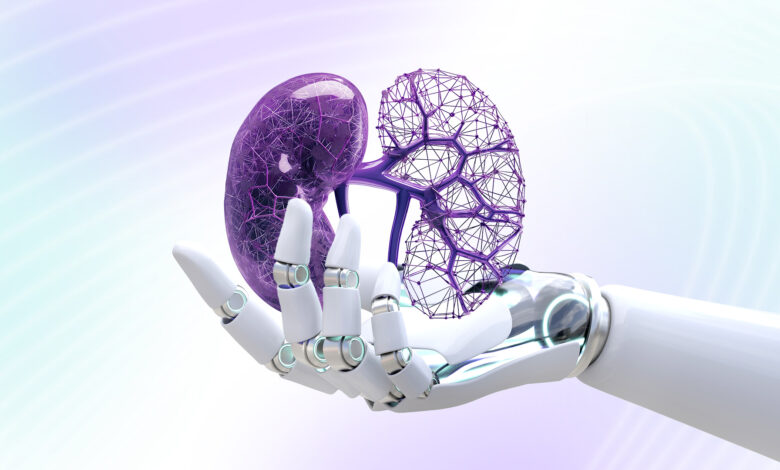
Chronic kidney disease (CKD) is a significant global health challenge. Early detection and timely intervention are critical, and artificial intelligence (AI) can revolutionize kidney care by enhancing the ability to identify CKD in its early stages and predict those likely to progress to end-stage kidney disease. Early detection and timely intervention are critical, and artificial intelligence (AI) can revolutionize kidney care by enhancing the ability to identify CKD in its early stages and predict those most likely to progress to end-stage kidney disease. Given the global shortage of kidney specialists, an AI-enabled upskilling program can help empower existing healthcare providers to better manage patients in need of intervention. These advancements pave the way for more effective treatment and management strategies.
The Rising Prevalence of CKD and the Growing Need for Early Detection and Treatment
CKD is a progressive condition that often remains asymptomatic for years, which is why many individuals remain unaware of their disease until they experience significant complications. Nearly 90% of people affected by CKD do not know they have it, and by the time symptoms appear, kidney function may be severely compromised. This delay in diagnosis is a major challenge, as early intervention is key to preventing the progression of CKD and minimizing the need for life-altering treatments like dialysis.
As the prevalence of CKD continues to rise, the strain on healthcare systems also grows. The costs associated with managing CKD, especially in its later stages, are substantial. Dialysis and kidney transplants require ongoing, expensive care, and complications resulting from late-stage diagnoses only increase the financial burden on healthcare providers. Without proper early identification and intervention, these costs are expected to continue escalating, creating a significant challenge for healthcare systems worldwide.
The Impact of AI on Kidney Health: Improved Diagnosis and Remote Monitoring for Greater Accessibility
The application of AI in the care of patients with CKD is not only significant in the detection of the disease but also in the surveillance of the patient’s condition. Conventional means of diagnosing CKD include blood and urine testing done in the laboratory. However, AI based applications can cross-reference multiple data sources including other test results, family history, medical history, lifestyle factors and environmental factors like temperature and humidity to assess kidney-related risks even before they become clinically significant. Serial monitoring of kidney biomarkers eGFR and UACR will allow tracking of the interval changes for which AI tools can generate new risk scores based on that.
Empowering Healthcare Professionals Through AI: Enhancing Skills and Alleviating Burnout
The rising demand for nephrology services has placed immense pressure on healthcare workers, contributing to burnout and workforce shortages. As CKD cases continue to increase, healthcare providers are tasked with managing more patients, intensifying stress and workload.
Integrating AI into nephrology can help bridge this gap by equipping healthcare professionals – including primary care physicians, nurses, and pharmacists – with powerful tools to diagnose, monitor, and manage CKD more effectively. AI-driven applications assist in clinical decision-making, offering valuable insights that enhance patient care while reducing cognitive burden.
By streamlining workflows and automating routine tasks, AI allows healthcare workers to focus on delivering high-quality care with less stress. Additionally, AI-powered platforms provide rapid, accurate assessments of kidney function and risk factors, helping to reduce the burden on nephrologists.
The Future of CKD Management: Leveraging AI for Better Health Outcomes
AI technologies are continuing to evolve and their impact on enhancing the management of CKD can help to improve screening, diagnosis and even surveillance, all of which lead to improved patient results.
The predictive nature of AI can assist in monitoring the progression of the disease and change the management plan accordingly. This individualized, data-based approach to the care of CKD patients guarantees that the right treatments will be provided to the patient at each level of the disease. This enhances quality of health and decreases the economic losses that could be incurred by the patient and healthcare system. With the help of these incredibly promising emerging AI technologies, the future of CKD care can be more accessible, timely, and patient-focused




